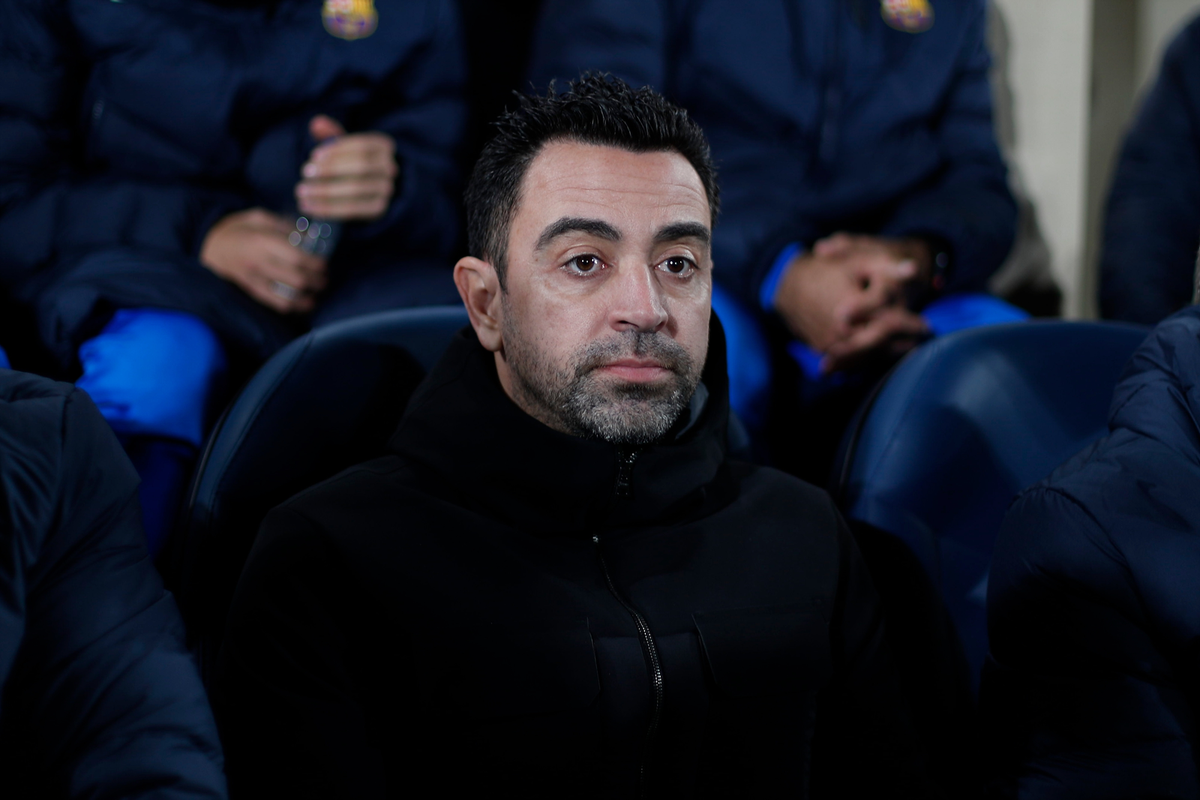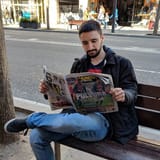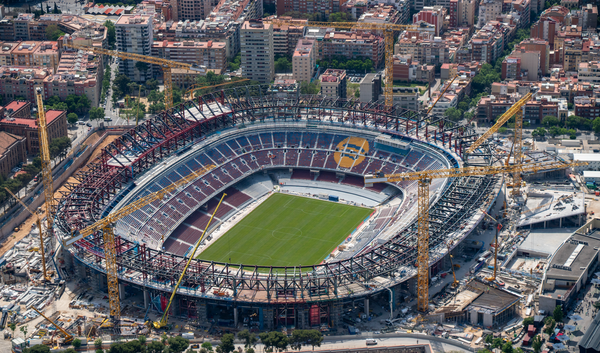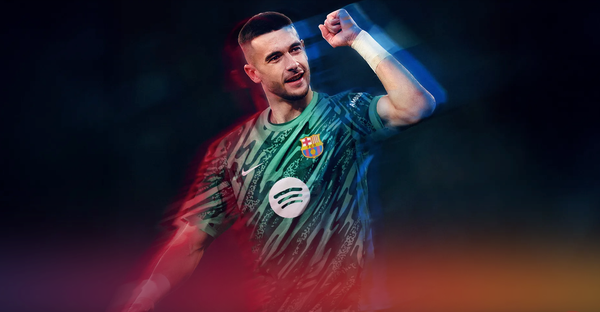All that glitters is not gold: Xavi Hernández and the optimisation of the Barca project
Xavi has now had the worst start of any Barcelona coach with 50+ games since as early as 2001. 50 games, 28 wins, 11 draws and 11 defeats amount to a 56% win rate. Quite clearly, for a club of Barcelona’s aspirations, it is severely lacking.

With the defeat in El Clásico, Xavi has now had the worst start of any Barcelona coach with 50+ games since as early as 2001. 50 games, 28 wins, 11 draws and 11 defeats amount to a 56% win rate. Quite clearly, for a club of Barcelona’s aspirations, it is severely lacking. But it’s also lacking in context. We all knew Xavi’s rise would be challenging and long. To rebuild a team like this, essentially from top to bottom, overnight, is nigh-impossible. Rome wasn’t built in a day, after all.
But there’s much more that goes into this. Xavi needs time, yes, but how much will he get? How much should he get? A lot will obviously depend on the results because without results, Barcelona can’t survive, neither financially nor sportingly. That much is clear. “Barça’s history has demands of us, not of Madrid. Our history for 40 years, when Johan (Cruyff) came, set a bar: to win by playing well. If we don’t play well, we’re not happy. That’s how we Catalans are,” Xavi explained back in April. Nothing much has changed in that regard since that statement. Barcelona still need to win and Barcelona still need to win by playing well. However, currently they’re neither winning nor playing well. There is one common denominator in this conversation, though - squad optimisation. The issues, however, are multi-layered. Let’s start with the first one: tactics.
Tactics
Barça have got flaws that have been haunting the team since last year that Xavi is yet to address. They are overly vertical and lack a stable and compact defensive block. I wrote about this back in May and most (if not all) of those issues are still applicable to this team five months later at the start of a brand new season.
It's not new problems that break a team, it's the old, well-known ones that eventually catch up and show against the best of the opposition. This has already been the case. While Barcelona can force their way to victory against lesser rivals in LaLiga, in Europe, individual quality - as high as it may be - isn’t and won’t be enough. Their structural flaws are put to the test and more often than not, the fragile fundamentals start to crack. Barcelona don’t give other teams much of the ball but in spite of that, they are so easy to play through. Think of the very elite teams in Europe. How many of them lack compactness? How many of them let you carve them open in every attack? Every top team nowadays is incredibly tough to play through. Not just because they press really well but because their block in whichever phase is incredibly difficult to breach. Think Liverpool, Arsenal, Manchester City or even Real Madrid over the years.
Many of these definite traits or rather, definite flaws are often visible at the very start of any coach’s tenure. People have been comparing Xavi to Chelsea’s ex-gaffer Frank Lampard. One thing they do have in common is exactly that - their issues were well-known and documented at the very start. Lampard’s demise was ultimately in not addressing them. Xavi may very well fall prey to the same project-killing flaw if he doesn’t address the fundamental and recurring issues that plague Barcelona. Sadly, despite initially showing signs of big improvement on the ball, his rigidity in attack also craves improvement. Let’s take the clash at the Camp Nou against Inter Milan in the Champions League as an example.
All of Barcelona’s problems are exponentially multiplied if you're not compact or properly staggered across the zones of the pitch. Reducing the space between your players might seem counterintuitive when you're facing a narrow and compact block but the interaction between Xavi's 3-1-6 and Simone Inzaghi's 5-3-2 was heavily skewed in Inter's favour just on paper alone.
In a 3-1-6 system, you must prioritise where you’re attacking and what exactly your goal is rather than just filling the zones on the pitch. It seemed like Xavi looked at the 5-3-2 and decided to create a six-lane attacking structure while not realising he’s fallen into the trap of being too static and lacking fluidity to break down a five at the back block. When a team plays a 3-1-6 they often succumb to having just the 3-1 buildup shape be compact. You have to have certain narowness to enable your combination play between the lines and to have better rest-defence for players when they do lose the ball. Take Ousmane Dembélé as a great example. Whenever he’s doubled down - and this happens a lot lately - he finds himself too isolated to just pass it back and/or retain possession because the spaces between them are too big. The system can’t just be about pinning defenders back. That's why I'm saying Barcelona are too static – Xavi has the idea of wide wingers always pinning the backline and providing width. This is fine as an underlying idea for your system. However, if you don't offer them support in a staggered structure, your isolation will only ever achieve exactly that – isolation of wingers from the rest of the team.
The 3-1-6 should encourage play through the lines, not make it nigh-impossible. Barcelona could get away with that when Lionel Messi was on the team because he finds the angles and space that would normally be inaccessible. Now, however, they can't retain possession down the middle if the structure is severely lacking. If it is, a 3-1-6 only ever encourages direct spamming of the ball to the last line against a 5-3-2. Everyone was surprised at the fact Barcelona were forcing crosses into the box so relentlessly. But in this setup and against that Inter, most of the time the only option was indeed to distribute the ball long and hope something happens in a 6v5 situation before one of the opposition midfielders drop for numerical parity. This is the very opposite of tactics optimisation.
The question then becomes not only is he going to address these issues but also how long should this take. A couple of months with a brand new team? A season? Two seasons? And how long is Joan Laporta willing to wait for him to fix them? Either way, this brings us to the second issue of squad optimisation: coaching.
Coaching
To my understanding, Xavi is a good manager who has a clear idea of football - that's very good as a foundational element of any young project in the making. He also knows what kinds of players the team needs but it still remains to be seen whether he also has the theoretical and coaching capacity to mould what he already has at his disposal. Ironically, Xavi nailed it with his assessment of Real Madrid, just prior to the clash. “Madrid minimise their errors and maximise their virtues,” he said. “That is why they have been winning with these teams for years."
And this is the key to optimisation - minimising the flaws and maximising the virtues. But so far, we haven’t seen that from Barcelona. Granted, injuries have played a big part. However, we cannot hide behind them at all times. Xavi has, at least initially, shown he can deploy sensible structures with clear intentions - even though that doesn't always translate on the pitch - and that he also knows how to recruit players that fit that blueprint. In that sense, his greatest achievement may lie in the overhaul of Barcelona’s squad profiles. He would set the foundation for our success but not necessarily lead us to the top himself. He may yet, of course, but that will depend on his own coaching capacity more so than just on assembling a great team.
It’s been pointed out that we still suffer from having no 'natural' defenders in the middle, apart from Sergio Busquets who’s getting slow and sluggish, on and off the ball. But Barcelona need people who do the basics to a high and consistently reliable level. It's one of the reasons they are so vulnerable. If this issue persists, which it has so far, it could communicate a flaw in Xavi’s coaching. That coaching flaw can - and already has - ultimately reflect at the highest level in Europe. Defending is mostly all about coaching and structure of the team – of course, having a natural like Ronald Araújo helps but it's also largely learned behaviour. There is no reason why Frenkie De Jong shouldn't be able to improve in that regard. But why hasn't he? And that is a process, of course, but how long should this take? If it isn't fixed this season already, again, it might point to Xavi either not training it or being unable to train it. The issue is, it's difficult to tell which one, if either, is true because we don't have such access to behind-the-scenes events at the club. But the question remains: Can Xavi coach De Jong, Pedri and Gavi to be better at that? To have more defensive awareness and not to solely be praised for their energy and will but rather for smart defending too?
For now, it seems Xavi would rather buy players that already have these traits drilled into them than necessarily have to drill them in himself. Jules Koundé is a good example of that, and so is Bernardo Silva. It’s why he wants the latter so much - yes, for his immense offensive potential but also for his defensive maturity. While he's not big or particularly strong, Bernardo is exactly the player who knows the basics extremely well and does them reliably and consistently. There's nothing wrong with this approach if you have the resources and the pull to do it. Many have done it before him and many have been successful for it. But that brings us to the final aspect of squad optimisation: recruitment.
Recruitment
Barcelona’s summer has been praised (and criticised) at length. The famous palancas have enabled Laporta (and Xavi) to basically reinvigorate a debt-ridden club. However, despite their best efforts, Barcelona are far from a finished product. And glaringly so. As already alluded to, Xavi’s initial profile identification filled me with hope. He was targeting the right players and recognising what the team needs. This still holds true to a certain extent. We needed a striker of Robert Lewandowsky’s pedigree and we got the man himself. We needed quality at centre-back so we got Koundé, one of the biggest names you could get. We needed reliable depth to complement the project that is Eric García and the decline and phasing out of Gerard Piqué so we got Andreas Christensen. But this is where the sensible and the necessary stops.
Héctor Bellerín, Marcos Alonso, Franck Kessié and yes, even Raphinha are yet to warrant their respective recruitments. Don’t get me wrong, all of them have their virtues, especially the latter two whose individual quality is well-known, albeit yet to be fully apparent. However, how do they affect the optimisation of the squad? The two full-backs are likely to be just bodies to add depth; they have their traits and situational utility but aren’t necessarily the solution to any of Barça’s glaring issues. Alonso can be used to phase Jordi Alba out but to say he’s better than him, let alone better than Alejandro Balde, is a stretch. Bellerín scales similarly bad to Sergi Roberto and Koundé, albeit may surpass the former eventually. The issue is, however, that the backline won’t be fully optimised until Barcelona’s best players - Koundé & Araújo - are deployed as centre-backs and flanked by Balde and a right-back who isn’t Roberto or Bellerín. The need for a quality wide full-back is becoming glaringly obvious.
Kessié is someone I’ve had trouble decoding. My initial assessment deemed him insufficient but the pure idea of him grew on me over time: he is a player that offers box threat, is a hardworking runner, smells danger well compared to our other midfielders and is, for all intents and purposes, an all-action profile. Sadly, all of this has been poorly translated onto the pitch so far. There is a growing idea of deploying him in a double-pivot with De Jong but even though I’d like to see it, on paper it’s still suboptimal; they are two players who thrive in similar free-roam, box-to-box roles and both would suffer from being the largely stationary, horizontal pivot next to their more adventurous and vertical partner. We’re sacrificing one player to accommodate the other, which brings us perfectly to Raphinha.
Ever since his transfer, I’ve been talking at length about how suboptimal it was - and still is - to deploy both Raphinha and Dembélé at the same time. They’re both high-quality wingers and every top team should have a player of their mould in their squad. Let me rephrase that, every top team should have one player of their mould in their squad. Of course, every top team also has at least two excellent options for every position. That too is true. However, both of these players are too expensive to be just squad players - the same issue plagues De Jong - and both of these players are at their best when playing right wing. Raphinha would’ve been a fantastic acquisition had Dembélé indeed left the club. Since he didn’t, Xavi is essentially being forced to squeeze them into the same lineup often to justify the former’s purchase. It’s the Antoine Griezmann and Philippe Coutinho case all over again, albeit on a significantly smaller scale, both financially and sportingly. Raphinha and Dembélé can play together but one will always be at a disadvantage if they do.
In other words, it can work but it’s suboptimal. Again.
Final remarks
So where does that leave us, then? It leaves us with a team that has been improved by transfers of both players and the coach but is yet to be fully optimised through tactics, individual coaching and recruitment. Xavi is a coach whose fundamental understanding of the game is his best attribute by far - he knows how the game should be played and he knows what Barcelona need to succeed.
However, the jury is still out on the fact whether he’s indeed the one to get us to that point. If he isn’t, we need to be quick to recognise it. For now, however, he indeed needs more time to state his case fully. But we also need to be harsh and objective enough to say issues, especially the issues of the past, need to be addressed soon and progress needs to be clearly visible.
If that happens, we can start talking about a great manager, not just a good one. Because that’s what Barça need and will hopefully get with Xavi.




